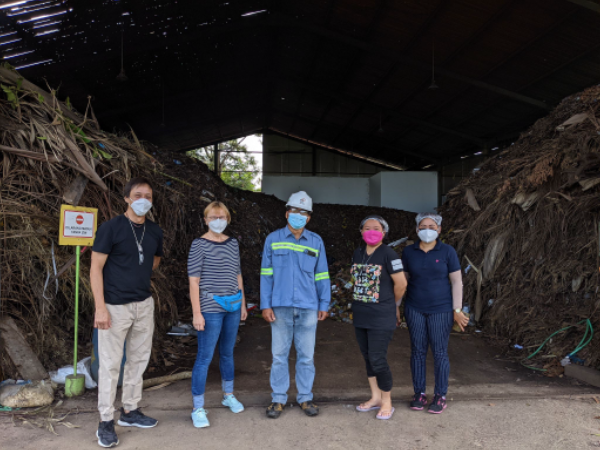In Indonesia, a country where sorting and proper treatment of trash is rare, how do we run the Assembly sustainably?
In 2019, Bangun P. Nugroho, a member of Jemaat Kristen Indonesia (JKI church) Holy Stadium in Semarang, Central Java, realized that landfills are filling up fast with a mix of organic and inorganic waste. The lack of sorting and treatment releases a stench to the surrounding community. So PT ALTSA, the company he worked for, did a feasibility study into waste management, got proper licenses and in March 2020 started accepting the food and green waste from a local public university in Semarang to be treated.
“Every day, the university produces tonnes of mixed wastes, among them plastic, paper, green waste and food waste – all of which used to end up in landfills,” Bangun P. Nugroho says.
PT ALTSA started to sort them, turning the green waste (the result of plant pruning and grass cutting) into compost. Meanwhile, food and other organic waste fed to maggots. These black fly larvae eat the waste food, getting rid of the stench and reducing the volume. The processed organic waste is then sifted and sold as fertilizer.
In addition, because organic waste is fertile breeding ground for maggots, excess larvae can be sold to chicken and fish farms as high protein feed, free of antibiotics.
“It is an end-to-end solution. The organic waste becomes fertilizer for the farms and food for the maggots. The maggots become a good diet for chicken and fish that we eat. And we return our food waste to the maggots,” says Bangun P. Nugroho.
Other than processing the university’s waste, PT ALTSA takes on other clients like restaurants, cafeterias and hotels. Mennonite World Conference will partner with them to ensure that the waste produced by the Assembly is properly treated and returned to the ecosystem sustainably.
“All I want is for things that people throw away to be returned to the environment in a form that is acceptable to them,” says Bangun P. Nugroho.

